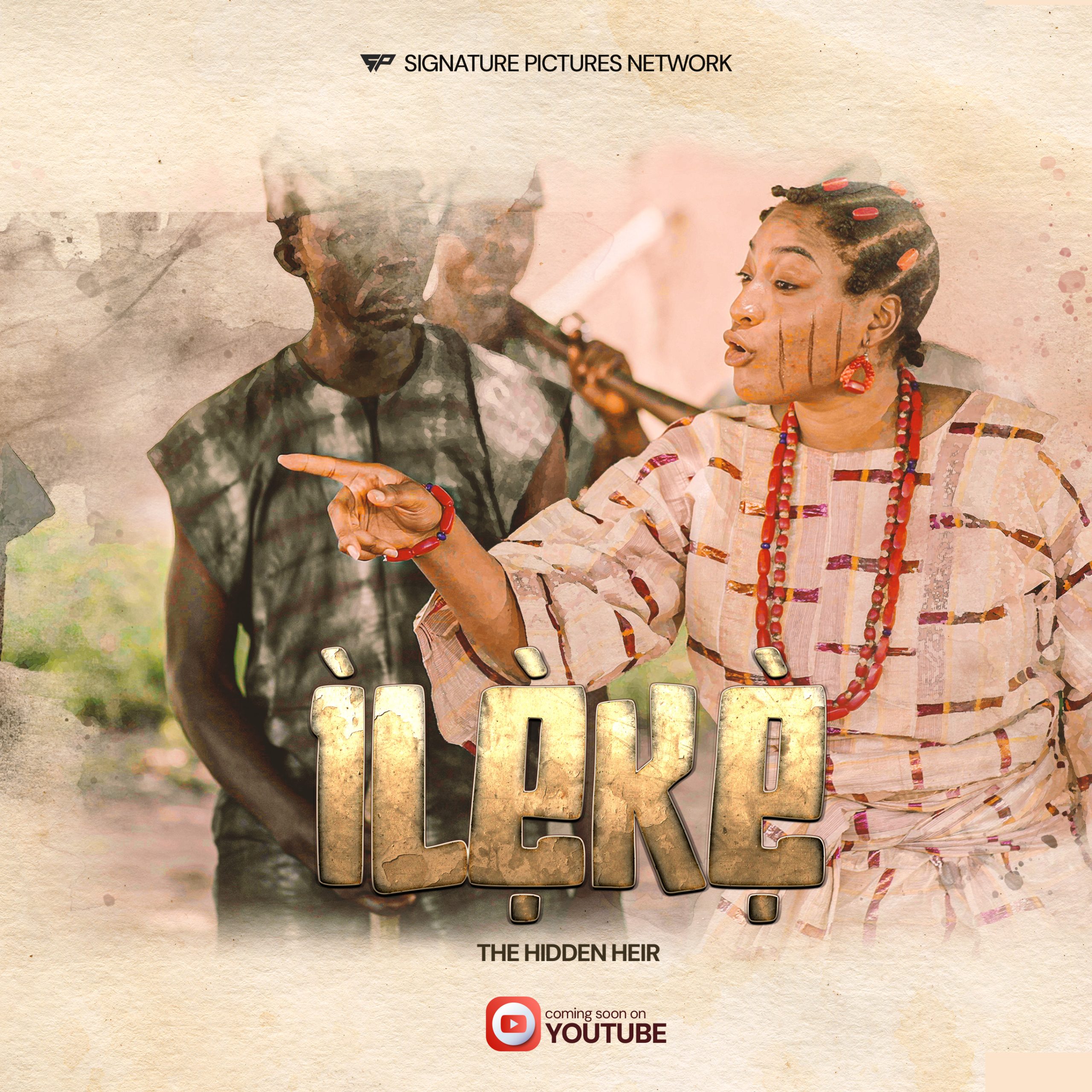In a world where globalization often overshadows indigenous cultures, Ileke emerges as a beacon of cultural preservation and celebration. The series seamlessly weaves the threads of tradition, history, and folklore into its narrative, offering viewers a window into the rich tapestry of African heritage. Through its storytelling, visual design, and character development, Ileke not only entertains but also educates and inspires, making it a standout piece of cultural representation in modern media.
Rooted in Tradition
One of the most striking aspects of Ileke is its commitment to portraying cultural traditions authentically. From the sacred ileke beads that play a pivotal role in the story to the rituals and customs depicted in various episodes, the series captures the essence of African traditions with care and reverence. The beads, for instance, are not just plot devices but symbols of spiritual and social significance, embodying themes of power, destiny, and connection.
The show’s creators conducted extensive research into the cultural practices and histories they wished to portray. This effort is evident in the nuanced depiction of ceremonies, attire, and even language. For instance, the use of proverbs and idiomatic expressions lends authenticity to the dialogue, transporting viewers to a world where oral tradition is a cornerstone of community life.
Visual and Aesthetic Representation
The visual elements of Ileke are a feast for the eyes, celebrating the diversity and vibrancy of African cultures. The costume design, for example, showcases traditional clothing, from the regal attire of royalty to the everyday wear of villagers. Each piece is meticulously crafted to reflect the status, role, and personality of the characters. The sacred beads themselves are designed with intricate patterns and vibrant colors, symbolizing their mystical and cultural importance.
The sets and locations are equally compelling, with lush landscapes, bustling markets, and intricately designed palaces bringing the story to life. These visuals are more than just backdrops; they serve as characters in their own right, offering a glimpse into the geography and architecture of the setting. The attention to detail extends to the props and tools used in various scenes, further grounding the narrative in its cultural context.
Language and Storytelling
Language is a powerful tool for cultural representation, and Ileke uses it masterfully. By incorporating indigenous languages and dialects, the series preserves linguistic heritage and reinforces the authenticity of its world. Subtitles ensure accessibility for a global audience, allowing non-speakers to appreciate the rhythm and richness of the language.
Storytelling in Ileke is deeply rooted in African traditions, particularly the use of oral narratives. The series employs flashbacks, parables, and proverbs to convey moral lessons and cultural values. This narrative style not only enriches the story but also pays homage to the griots and storytellers who have preserved African history and knowledge for generations.
Cultural Themes in Character Development
The characters in Ileke are more than just individuals; they are embodiments of cultural archetypes and values. The king, for example, represents leadership and wisdom, while the two princesses highlight themes of rivalry and unity within familial bonds. The exiled Balogun’s son serves as a cautionary tale of hubris and redemption, reflecting the cultural emphasis on accountability and moral integrity.
The interplay between tradition and modernity is another key theme explored through the characters. While some embrace the old ways, others challenge them, creating a dynamic tension that mirrors contemporary societal debates. This duality ensures that the series remains relatable to viewers from diverse backgrounds.
Celebrating African Spirituality
Ileke also shines a spotlight on African spirituality, often overshadowed or misrepresented in mainstream media. The sacred beads, rituals, and spiritual practices depicted in the series are rooted in respect for ancestral wisdom and the interconnectedness of life. By portraying these elements with authenticity and sensitivity, Ileke challenges stereotypes and fosters a deeper understanding of African spiritual traditions.
The series’ portrayal of spirituality is not monolithic but diverse, reflecting the various belief systems across the continent. This inclusivity broadens its appeal and underscores the richness of African spiritual heritage.
Empowering Cultural Identity
In an era where cultural homogenization is a growing concern, Ileke serves as a powerful reminder of the importance of preserving and celebrating cultural identity. For African viewers, the series is a source of pride, showcasing the beauty and complexity of their heritage. For international audiences, it is an eye-opening journey into a world that is often overlooked or misunderstood.
The impact of Ileke extends beyond the screen, inspiring conversations about cultural preservation and representation. Schools, cultural organizations, and community groups have used the series as an educational tool, highlighting its relevance and influence.
Global Appeal of Cultural Representation
While Ileke is deeply rooted in African culture, its themes and messages resonate universally. The story of love, sacrifice, and redemption transcends cultural boundaries, making the series relatable to viewers worldwide. By showcasing a specific cultural context, Ileke proves that the more personal and authentic a story is, the more universal its appeal becomes.
This global resonance is a testament to the power of cultural representation. By telling stories that are uniquely African, Ileke enriches the global storytelling landscape, offering perspectives and experiences that are both unique and universal.
Conclusion
Ileke is more than just a television series; it is a celebration of cultural representation in its most authentic and impactful form. Through its meticulous attention to detail, rich storytelling, and commitment to authenticity, the series honors the traditions, values, and spirituality of African heritage. At the same time, it opens a window for global audiences to appreciate and learn from this rich cultural tapestry.
In a world hungry for diverse stories, Ileke stands out as a shining example of how cultural representation can enrich and elevate the medium of storytelling. By celebrating the unique while embracing the universal, it offers a powerful reminder of the beauty and importance of cultural identity.

